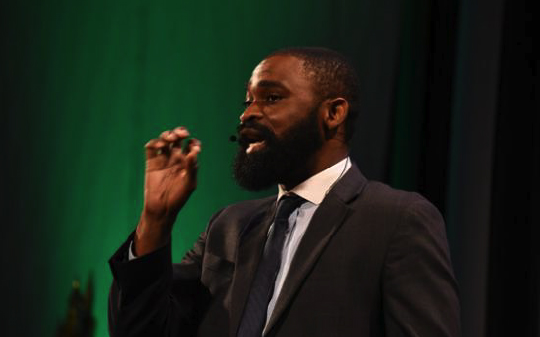By Marlon Madden
Economist Jeremy Stephen is predicting that Government’s Welcome Stamp initiative could see about 10 000 visitors coming here annually.
However, he told Barbados TODAY he did not expect more than about 3 000 people to take up the long-term stay initiative in its first year.
By the start of last month, more than 1 000 applications were processed under the initiative and it had raised about $1 million.
“I don’t expect in my lifetime that we will have more than 10 000 people in the programme [per year]. I could be wrong, but I don’t see it going past 10 000 in the future. Right now, the 1 000 beat my expectations, but conservatively I was saying about 2 500 or 3 000 in the first year,” said Stephen.
The Mia Mottley administration introduced the 12-Month Barbados Welcome Stamp initiative at the end of July, to allow visitors the opportunity to work remotely from Bridgetown for up to a year at a time.
Among the criteria, individuals must be earning at least US$50 000 annually and have an arrangement for health insurance or already have health insurance. The cost for the visa is US$2 000 per person or US$3 000 per family.
Giving an assessment of the programme, Stephen said several factors would determine the extent of the interest displayed in it and its longevity, adding that Barbados should expect stiff competition from lower cost jurisdictions with better infrastructure.
He said a lot was also riding on how well the programme was marketed, but he quickly pointed out that it would also depend on a number of people visiting the island and falling in love with different aspects.
“There are going to be people who will come here and fall in love with the place, the charm of the people and see certain benefits to being here that they can take advantage of . . . that will keep them coming,” said Stephen.
Pointing out that Barbados was seemingly going after middle-class or upper-middle-class remote workers, he said destinations such as Antigua and Barbuda and St Lucia, which also have similar programmes, would be able to attract more people who were cost conscious.
“If we remain a high cost jurisdiction because of our economic growth, lack of exports, and everything is tax driven, and high sustainability to external shocks, we will attract people who would not necessarily care too much about cost, but the other factors behind what makes a destination unique and attractive to them,” he explained.
Adding that cheaper destinations were also in a better position to attract digital nomads and others who were seeking a new location at this time, Stephen said he believed the sustainability of the Barbados Welcome Stamp also depended on the now struggling local tourism industry making a few changes.
He contended that the country could attract more people seeking to work remotely if hotels were willing to trade in short-term profitability on room rates for longer-term cash flow, by lowering their rates.
“If the tourism industry doesn’t adapt to trying to keep people on for a longer period of time, then 10 000 is the best [we’re going to get],” he said, adding that the experience and feedback from visitors as well as Government’s response to any negative feedback would play a role in how many people the country was able to attract in any given year.
Describing the Welcome Stamp initiative as a good start to encouraging economic activity and raising revenue, the economist said areas such as agriculture and foreign direct investment should be critical areas of focus over the next five to six years.However, in the case of agriculture, he told Barbados TODAY he believed Barbados did not have the capability of sustainably growing that sector given the high costs associated with local production.
“My view has been that Barbadian investors should continue embracing the idea of investing, say in Guyana, Suriname and Belize, growing certain crops to scale [and] sending back home some of them. That reduces your foreign exchange leakage on food that people seem overly concerned about,” Stephen said.
“It also allows you to develop an export profile. In other words, think Gross National Product and not Gross Domestic Product, where it doesn’t matter where it is done. Once it is done by Barbadians you can count that,” he said.
He also proposed that greater efforts be made to capitalise on the entertainment industry, by seeking to attract more production firms and musicians to Bridgetown to do their filming on the island.
“What I am saying is that there are several different areas, but the main point is that each country has to look at what systems are available to it now. In the case of Barbados, I would say we have a high human capital development, a low export profile, high cost of doing business. So, the industries we need to chase after in line with diversification can’t be the same as the rest of the subregion,” Stephen said.




